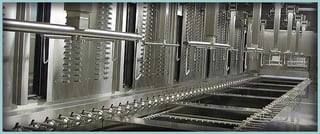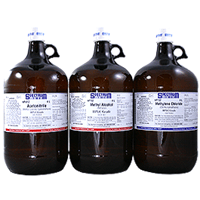
SilcoTek® recently held a webinar discussing the care of our silicon coated surfaces. The webinar discussed coating care and specific tips to maintain the superior performance of SilcoTek products. Many of our customers attended the webinar and discovered some very important coating surface care tips.
After the webinar concluded, I realized most technicians, scientists and engineers could gain a lot from the webinar, not just coating specific care. In fact most of the webinar tips really touch on important overall critical flowpath maintenance and care, regardless of the surface. Industries ranging from Oil & Gas exploration, refining, chemical process, semiconductor, analytical, & bio tech should pay attention to the when, how, and why of maintaining a critical flowpath; because a poorly maintained surface will impact yield, product quality, and perhaps environmental compliance. So be warned, ignore surface maintenance at your peril. Your critical flowpath may just end up looking like that pot hole filled road you drove to work on today.
You may be thinking, "Well when you put it that way, maybe I should have checked out this webinar. Too bad it's over." You're in luck! Even though our webinar is over, you can still watch the recorded version and get some really good tips on critical surface maintenance.
OK, what will I learn if I watch this webinar? Good question! You'll pick up some great takeaways from the webinar that apply to just about every field; here are just a few tidbits:

Do's and Don'ts of surface maintenance.
- Set a regular surface maintenance schedule. You do equipment preventative maintenance, why not PM your critical flowpaths?
- Don't steam clean. No matter what your surface, steam cleaning is not a good idea. Particulates commonly found in live steam will deposit on your surface, contaminating your process or sample.
- Do resurface as needed. Over time roads get pot holes, paint peels, furniture needs polishing; just about all surfaces need some sort of maintenance. So the next time you're driving down that rut filled road, think of your critical flowpath. I bet it needs maintenance too.
- Don't abrade or change surface roughness. A rough surface can trap contaminants and increase unwanted surface interaction.
When to clean.

More often than you think! Set a cleaning schedule and learn the signs of surface contamination. Time to resurface if you notice a color change in the coating. Other signs you may need to rejuvenate or replace the surface are:
- Pitting
- Corrosion
- Particulates
- A film or other contamination
- Age
How to clean your surface.
The key takeaway? Match the solvent to the contaminant:
Use the least aggressive, most effective solvent. Why risk damaging the surface if you don't need to. Common effective solvents are:
- Acetone
- Methanol/IPA
- Dichloromethane
- Water
- Mild sonication
|
 |
Note that different industries have different approved cleaning methods. Research industry publications for best practices and develop your own written method to assure consistency.
What do semiconductor processing, stack probes, analytical instrumentation and refining have in common? They all have critical surfaces that must be maintained in order to keep their processes running smoothly. What areas, to what degree, and how surfaces are cleaned and maintained vary by industry. Take a few minutes to watch our webinar to learn how to maintain surfaces in your industry. You'll be glad you did.





